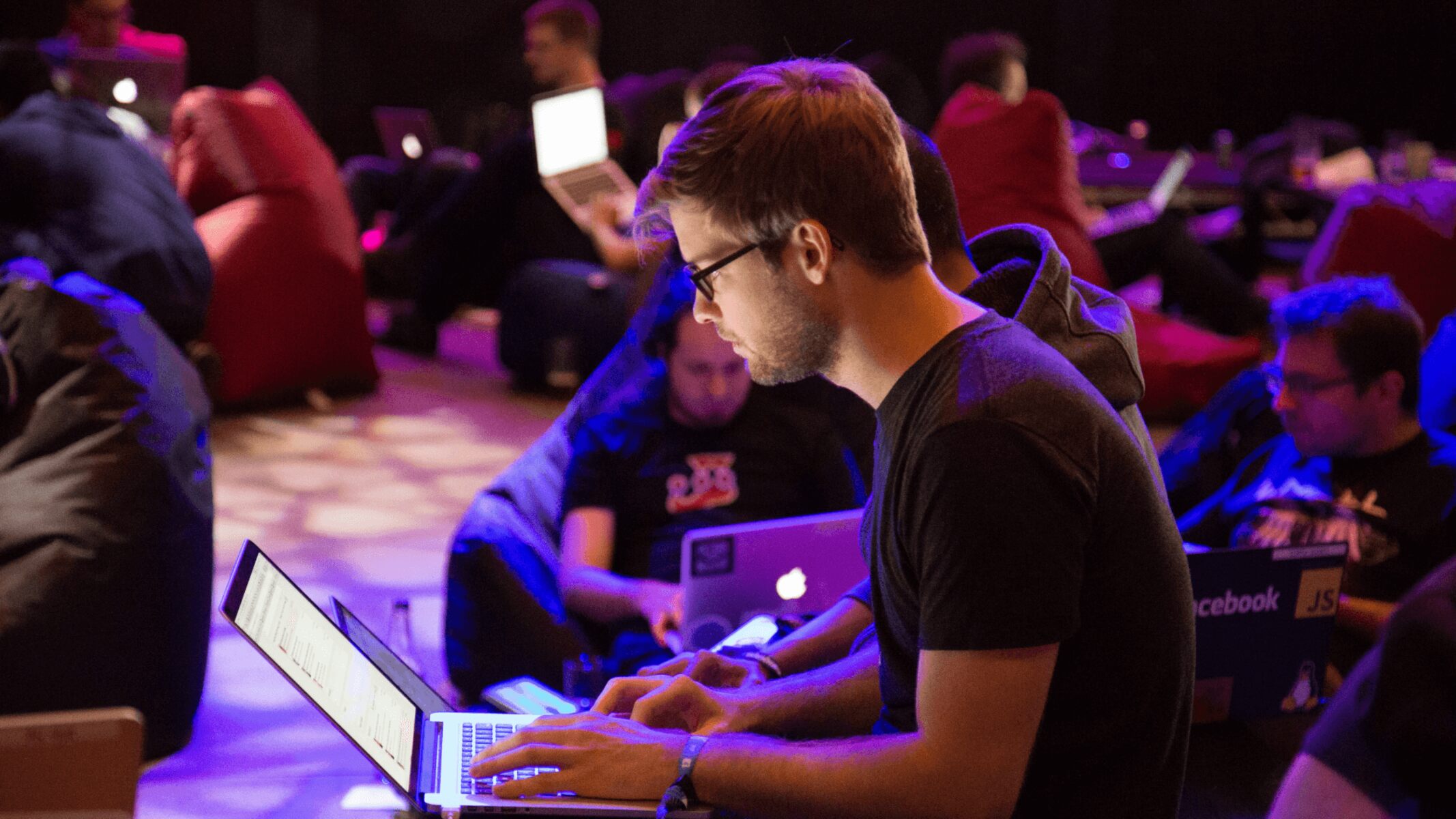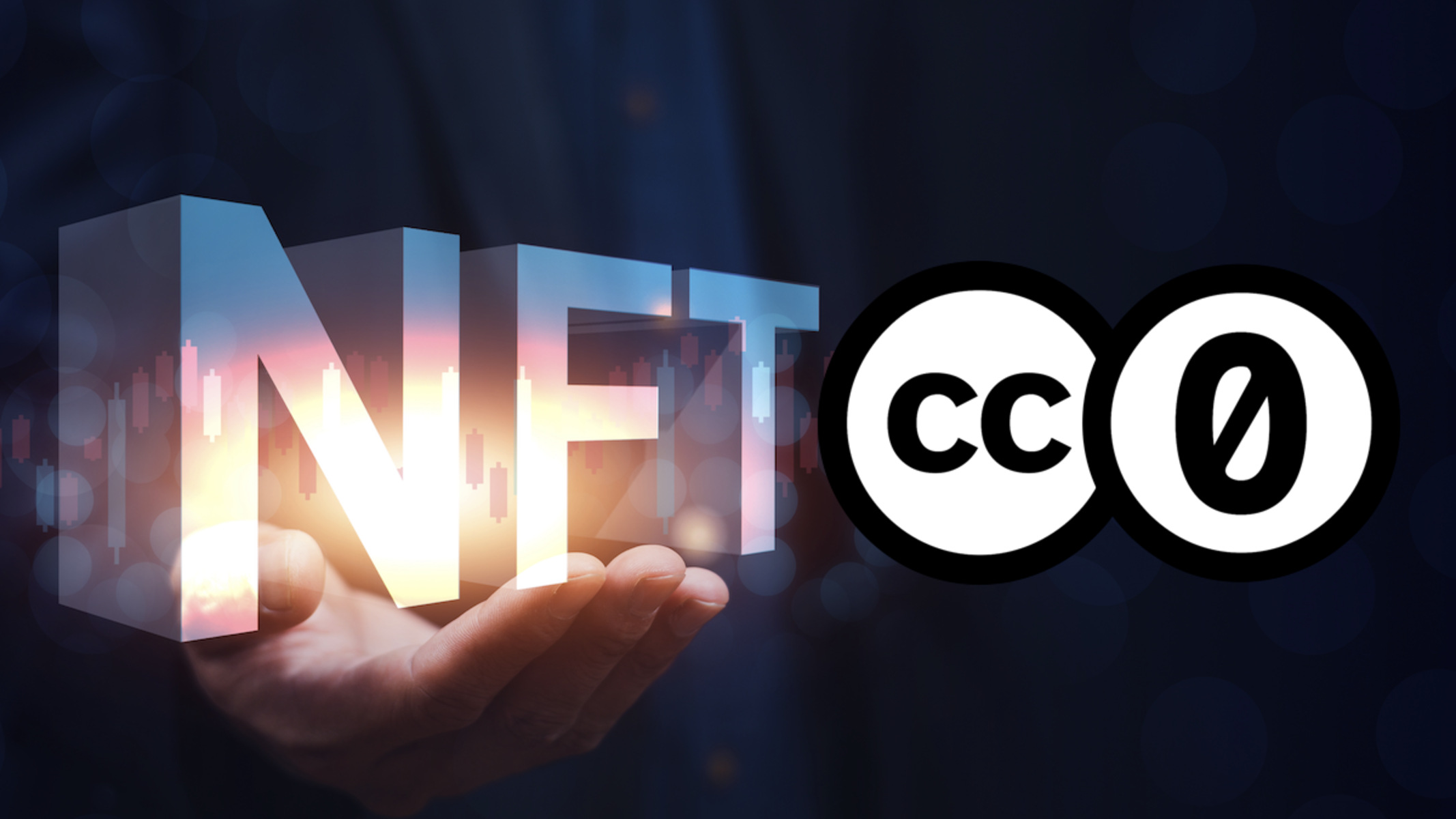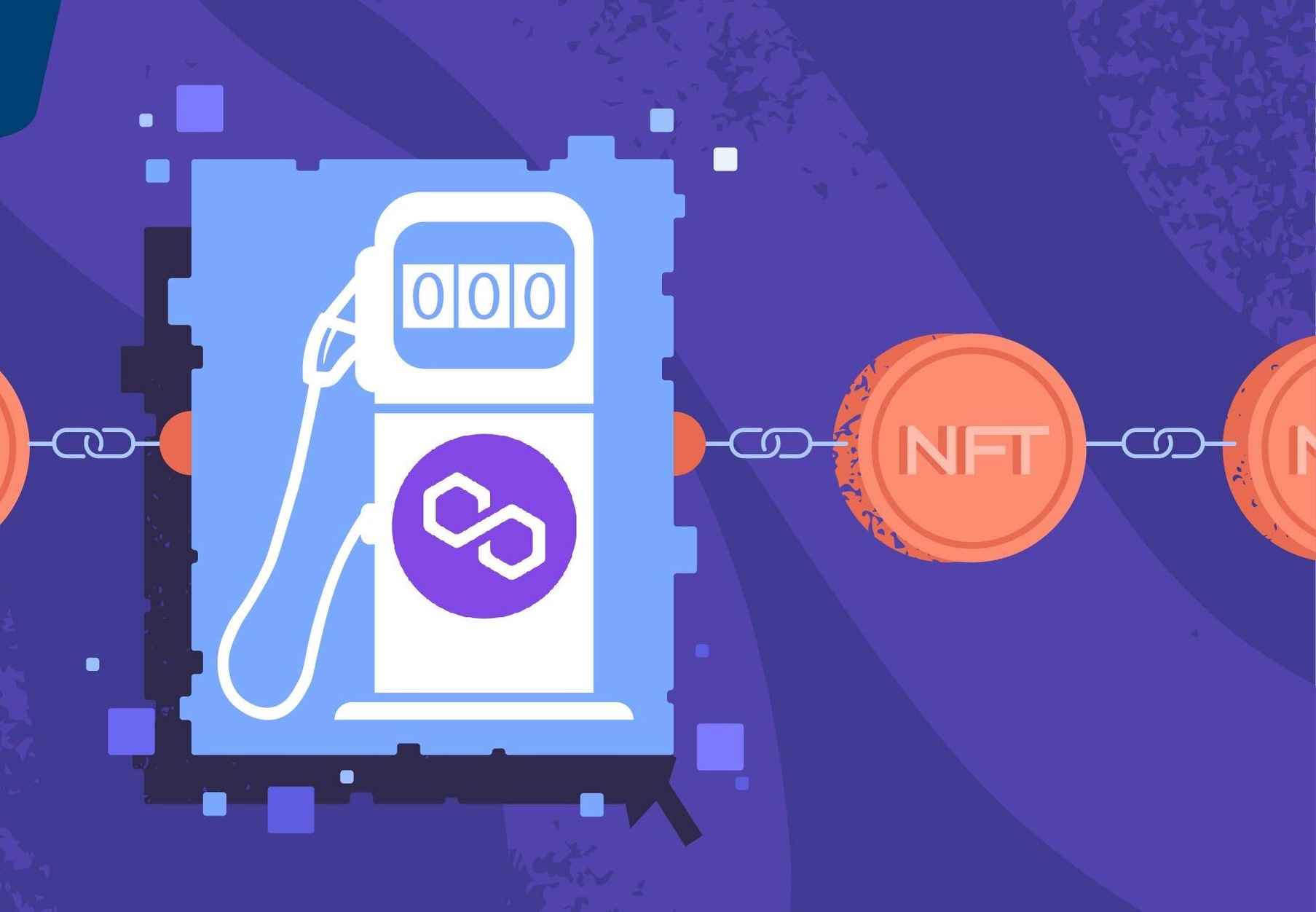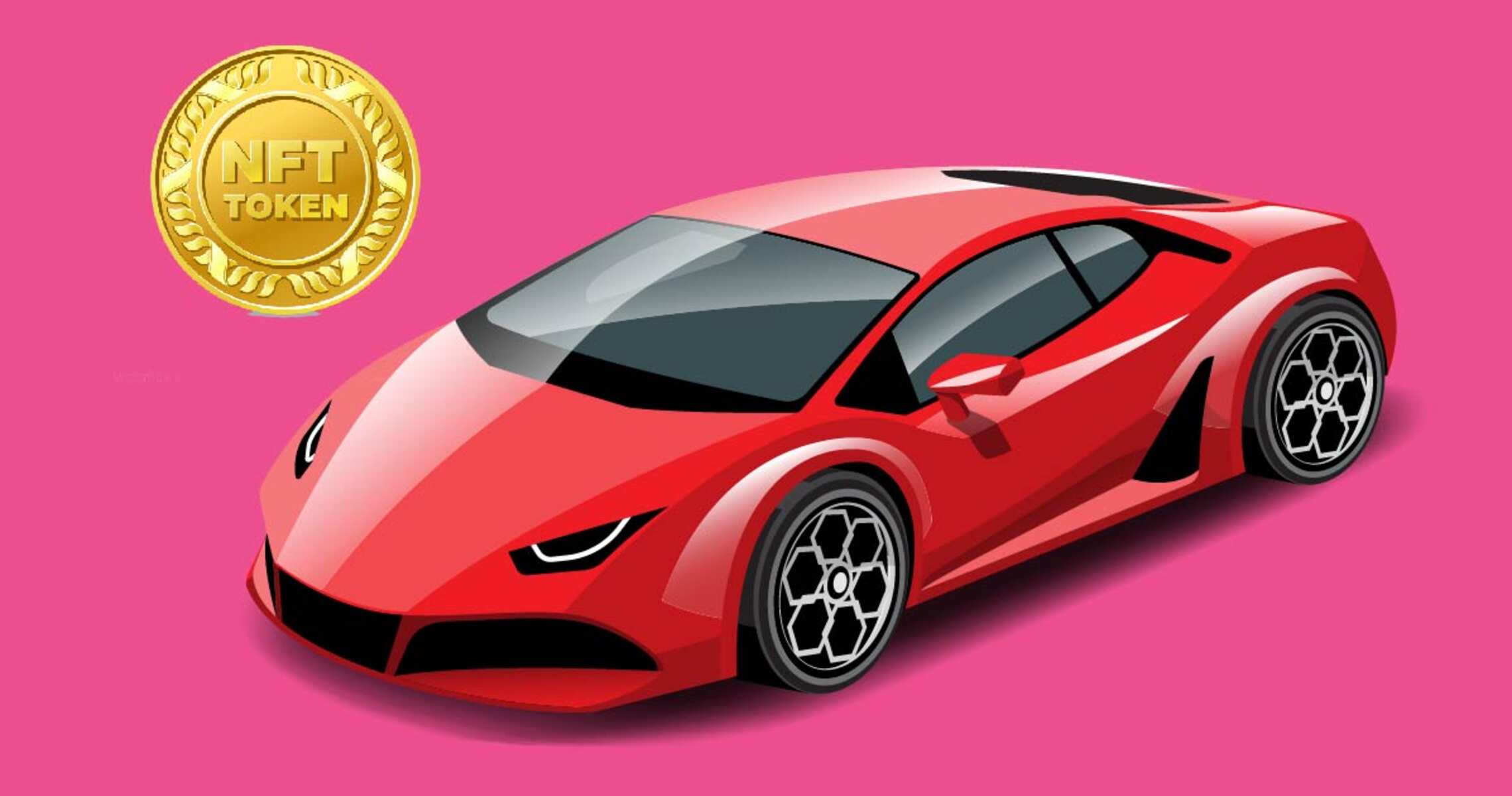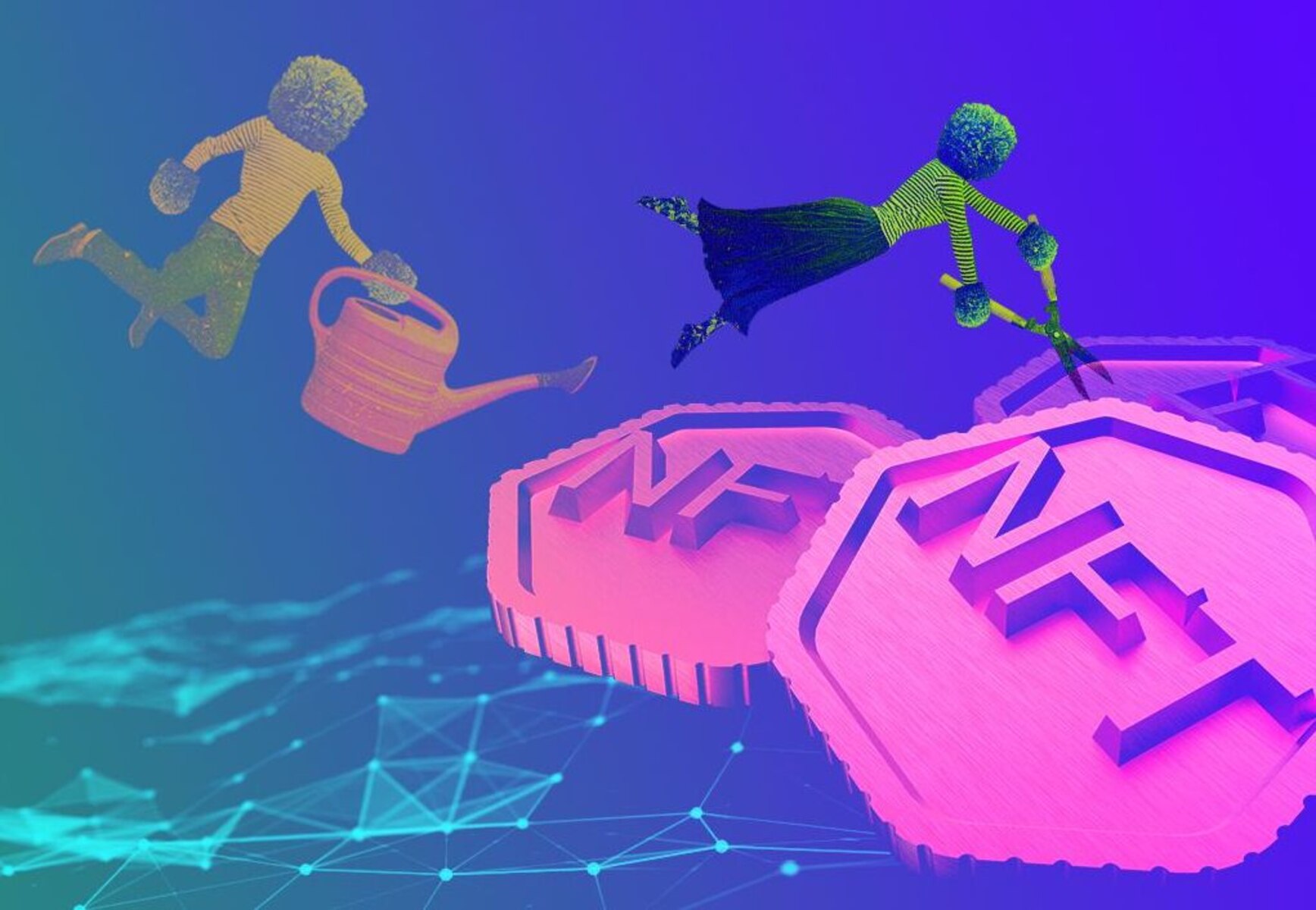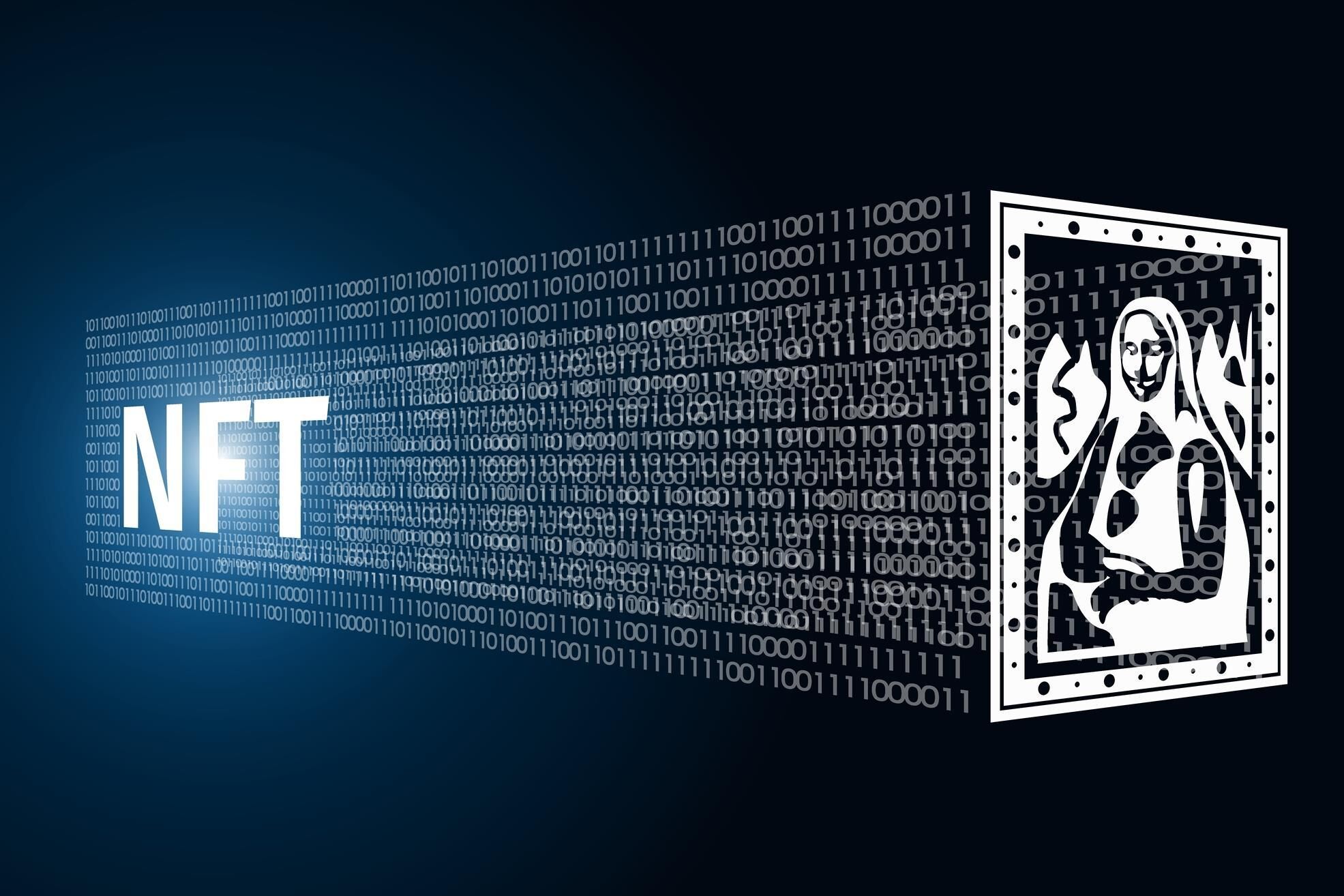Introduction
Non-Fungible Tokens (NFTs) have gained immense popularity in recent years, revolutionizing the digital art and collectibles market. These unique digital assets, backed by blockchain technology, have opened up numerous opportunities for creators and collectors alike. However, developing NFTs requires specialized skills and expertise. That’s where NFT developers come into play.
NFT developers are professionals who possess the technical know-how and experience to create, deploy, and manage NFTs on various blockchain platforms. They understand the intricacies of the blockchain ecosystem, smart contracts, and digital asset management. Whether you’re an artist looking to tokenize your artwork or a business owner looking to leverage NFTs for marketing purposes, hiring an NFT developer is crucial to ensuring a successful venture.
But where can you find these skilled professionals? In this article, we’ll explore different avenues and platforms to help you find the right NFT developer for your project. From freelance platforms to blockchain development companies, we’ll highlight the places where you can connect with talented individuals who can bring your NFT ideas to life.
Understanding NFTs
Before diving into the process of finding NFT developers, it’s essential to understand the concept of Non-Fungible Tokens (NFTs) and their significance in the digital world.
An NFT represents a unique digital asset or piece of content, such as artwork, music, videos, or collectibles, that is stored on a blockchain. Unlike cryptocurrencies like Bitcoin or Ethereum, which are fungible and interchangeable, each NFT has a distinct value and cannot be replicated or substituted.
The value of an NFT comes from its scarcity, authenticity, and the immutable record maintained by blockchain technology. It allows artists, creators, and collectors to establish ownership and provenance of digital items. This has opened up new opportunities for artists to monetize their work directly, without the need for intermediaries, and for collectors to own and trade unique digital assets in a transparent and secure manner.
NFTs have gained tremendous traction in the art world, with high-profile artists and celebrities embracing the medium. The ability to tokenize artwork and sell it directly to collectors has democratized the art market and created new revenue streams. Additionally, industries such as gaming, music, fashion, and sports are also exploring NFTs as a means of enhancing fan engagement, creating virtual assets, and enabling unique experiences.
The underlying technology behind NFTs is blockchain, a decentralized and transparent ledger that ensures the authenticity and provenance of digital assets. Smart contracts, self-executing agreements stored on the blockchain, play a vital role in governing the ownership, transferability, and royalties associated with NFTs. Therefore, NFT developers need to have a deep understanding of blockchain technology, smart contract development, and the specific intricacies of the NFT ecosystem.
Now that we have a solid understanding of NFTs, let’s explore the various avenues to find skilled NFT developers who can bring your digital asset ideas to life.
Importance of Hiring an NFT Developer
When it comes to creating and managing NFTs, hiring an experienced NFT developer is crucial. Let’s explore the reasons why their expertise is invaluable to your NFT venture.
Technical Skills and Expertise: NFT development requires a solid understanding of blockchain technology, smart contracts, and decentralized applications (dApps). NFT developers possess the technical skills to write and deploy smart contracts that can handle the creation, ownership, and transferability of unique digital assets. They can navigate the complexities of blockchain platforms, ensuring proper integration and compatibility with various marketplaces and wallets.
Efficiency and Time Savings: While you could attempt to learn NFT development yourself, hiring a dedicated NFT developer can save you significant time and effort. They have the necessary experience to streamline the development process, avoiding common pitfalls and ensuring a smooth execution. By delegating the technical aspects to a professional, you can focus on your core strengths, whether it’s creating artwork, marketing, or building your brand.
Security and Trust: NFT developers prioritize the security and integrity of your digital assets. They implement robust security measures, such as encryption and multi-factor authentication, to protect your NFTs from theft or unauthorized access. With their expertise, you can trust that your NFTs are stored on secure blockchain networks, providing transparency and immutability.
Future-Proofing: The NFT space is rapidly evolving, with new platforms, marketplaces, and standards emerging constantly. An experienced NFT developer stays up to date with the latest developments in the industry, ensuring that your project is built using the most current and effective techniques. They can also provide insights and guidance on potential future trends, helping you position yourself strategically in the market.
Customization and Scalability: Every NFT project is unique and requires customization to meet specific requirements. NFT developers have the expertise to tailor the functionality, design, and user experience of your NFT platform or marketplace. They can also ensure that your infrastructure is scalable to accommodate future growth, handling increased traffic and transactions without compromising performance.
Collaboration and Support: NFT developers are not just technical experts; they can also collaborate with you throughout the development process. They will understand your vision, provide valuable insights, and work closely with you to bring your ideas to fruition. Additionally, they can offer ongoing support and updates to address any issues or implement new features as your NFT project evolves.
Hiring an NFT developer is a wise investment in the success of your NFT venture. Their expertise, technical skills, and industry knowledge will ensure that your digital assets stand out in a competitive market and provide a seamless experience for collectors and users.
Where to Find NFT Developers
Now that you understand the importance of hiring an NFT developer, let’s explore the different places where you can find these skilled professionals for your project.
1. Online Freelance Platforms: Freelance platforms like Upwork, Freelancer, and Fiverr are excellent resources for finding NFT developers. These platforms allow you to browse through the profiles of various developers, view their portfolios, and reach out to them directly. You can evaluate their skills, expertise, and previous client reviews to ensure you find a developer who aligns with your project requirements.
2. NFT Communities and Forums: Online communities and forums dedicated to NFTs are great places to connect with developers who specialize in this field. Platforms like Discord, Telegram, and Reddit have active NFT communities where developers share their work, collaborate, and offer their services. Engaging in conversations and networking with community members can lead you to talented NFT developers who are passionate about the space.
3. Social Media and Networking: Social media platforms like Twitter and LinkedIn are not just for personal connections; they are also havens for professionals in the blockchain and NFT industries. You can leverage hashtags, groups, and industry-specific accounts to discover NFT developers. Engage with their content, participate in discussions, and reach out via direct messages to establish connections with developers who match your requirements.
4. Blockchain Development Companies: Many companies specialize in blockchain development and can provide experienced NFT developers. These companies have a team of experts who can guide you through the entire process of NFT development, from conceptualization to deployment. Research reputable blockchain development companies and discuss your project requirements with them to find the right NFT developer who can bring your vision to life.
When exploring these avenues, it’s essential to evaluate and select the right NFT developer for your project. The next section will discuss key factors to consider when evaluating and choosing an NFT developer.
Online Freelance Platforms
Online freelance platforms provide a vast pool of talent where you can find NFT developers for your project. These platforms offer a convenient way to connect with developers from around the world and evaluate their skills and experience. Here are some popular online freelance platforms to consider:
a. Upwork: Upwork is one of the largest freelance platforms and offers a wide range of services, including NFT development. You can browse through the profiles of different NFT developers, review their portfolios, and assess their past client feedback. Upwork also provides a secure payment system and facilitates direct communication with the selected developer.
b. Freelancer: Freelancer is another well-established platform that connects clients with freelance professionals. You can post NFT development projects on Freelancer and receive proposals from interested developers. The platform allows you to view the profiles of developers, their ratings, and reviews from previous clients. Freelancer also provides a chat feature for direct communication and offers tools to track the progress of your project.
c. Fiverr: Fiverr is known for its freelance services, with a focus on affordable options. It’s a popular platform for finding NFT developers with various skill sets. You can search for NFT developers on Fiverr based on specific criteria such as expertise, delivery time, and price. Fiverr also showcases seller ratings and reviews, helping you choose the right developer within your budget.
d. Guru: Guru is a freelance marketplace that allows clients to connect with professionals across different industries, including NFT development. The platform enables you to explore the profiles of NFT developers, review their portfolios, and compare their expertise. Guru provides a secure workroom for collaboration and ensures transparent communication and payment processes.
When utilizing online freelance platforms, it’s important to thoroughly assess the credentials of potential NFT developers. Consider factors such as their portfolio, previous work experience, client feedback, and responsiveness to inquiries. It may also be beneficial to conduct interviews or request samples to ensure they have the necessary skills and expertise to meet your project’s requirements.
It’s worth noting that while freelance platforms offer a wide range of developers, they also require diligent vetting and communication to ensure a successful collaboration. Keep in mind that rates and availability may vary, so it’s essential to establish clear expectations regarding project timelines, deliverables, and communication channels from the outset.
Continue exploring the next sections to discover additional avenues for finding dedicated NFT developers.
NFT Communities and Forums
NFT communities and forums provide a vibrant and interactive space where you can connect with developers who specialize in NFT development. These platforms are focused on the NFT industry, attracting individuals passionate about blockchain technology and digital assets. Here are some avenues to explore within NFT communities and forums:
a. Discord: Discord is a popular communication platform that hosts numerous NFT communities and channels. These communities often have dedicated sections where NFT developers showcase their work, discuss industry trends, and offer their services. Engaging in conversations and networking within NFT-focused Discord servers can help you identify talented developers who align with your project requirements.
b. Telegram: Telegram is another widely used messaging platform that hosts various NFT communities and groups. These groups consist of NFT enthusiasts, artists, collectors, and developers. Participating in NFT-related Telegram groups allows you to join relevant discussions, seek recommendations, and connect with developers who actively engage in the NFT ecosystem.
c. Reddit: Reddit has dedicated subreddits related to NFTs where community members share news, insights, and project updates. Subreddits like r/NFT, r/CryptoArt, and r/NFTMarkets attract a diverse range of individuals involved in the NFT space. Engaging with the community, posting inquiries about NFT development, and seeking recommendations can lead you to talented NFT developers who are active on the platform.
d. Online Forums: Various online forums, such as Bitcointalk and NFTalk, provide platforms for discussions, announcements, and service offerings within the NFT space. Developers often participate in these forums, showcasing their expertise and previous work. By actively participating in these forums, you can connect with reputable NFT developers, gather insights, and assess their suitability for your project.
When exploring NFT communities and forums, it’s crucial to approach the search process with a critical mindset. Take the time to evaluate developers based on their experience, expertise, and involvement in the NFT community. Look for developers who are actively contributing to discussions, sharing their knowledge, and receiving positive feedback from the community members.
Networking within these communities can also lead to recommendations from fellow members who have worked with NFT developers in the past. Additionally, stay updated with the latest news and events in the NFT space to identify potential developers who have been involved in noteworthy projects or collaborations.
Remember, while NFT communities and forums can be valuable resources for finding NFT developers, it is essential to thoroughly vet and establish communication channels with potential developers to ensure a successful collaboration that aligns with your project goals.
Continue reading to discover other avenues for finding skilled NFT developers.
Social Media and Networking
Social media platforms not only serve as avenues for personal connections but also provide excellent opportunities to connect with NFT developers and build professional relationships. Here are some key social media platforms and networking strategies to consider when searching for NFT developers:
a. Twitter: Twitter is a popular platform for professionals in the blockchain and NFT industries. Many NFT developers actively share their work, insights, and industry-related news on Twitter. By following hashtags like #NFTDeveloper, #CryptoArt, or #NFTCommunity, you can discover talented developers and engage with their content. Retweeting their posts, asking questions, and initiating conversations can help you establish connections and find potential developers for your project.
b. LinkedIn: LinkedIn is a professional networking platform that connects individuals across various industries. Utilize the platform’s search feature to find NFT developers based on their expertise, job titles, and industry experience. Engage with their posts, connect with them, and send personalized messages to express your interest in their work. LinkedIn also provides opportunities to join relevant NFT-related groups and engage in discussions to expand your network within the NFT community.
c. Facebook Groups: Facebook groups focused on blockchain, NFTs, and digital art are treasure troves of information and connections. Joining these groups allows you to interact with developers, artists, and enthusiasts in the NFT space. Actively participate in discussions, seek recommendations, and showcase your project requirements to attract the attention of talented NFT developers who may be looking for new opportunities.
d. Industry-Specific Platforms: Explore industry-specific platforms such as Gitcoin, a platform that connects developers with blockchain projects, including NFTs. These platforms provide opportunities to seek out developers with experience in NFT development and collaborate on projects. By leveraging these platforms, you can connect directly with developers who are passionate about blockchain technology and NFTs.
When utilizing social media and networking to find NFT developers, it’s important to approach the process with a strategic mindset. Create a compelling profile that showcases your project’s vision and requirements. Engage with developers through meaningful interactions, such as commenting on their posts or sharing valuable insights. Actively participate in relevant discussions and demonstrate your passion for the NFT space.
Make use of direct messaging to initiate conversations with potential developers. Clearly communicate your project goals and ask for their input or recommendations. Building genuine connections and showing a genuine interest in their work can significantly increase your chances of finding talented NFT developers who are a good fit for your project.
Keep in mind that social media platforms are dynamic, so stay updated with the latest trends, events, and hashtags within the NFT community. This will help you identify emerging talent and stay connected with the ever-evolving NFT industry.
Now that we’ve explored social media and networking as avenues for finding NFT developers, let’s move on to the next section, which discusses the option of blockchain development companies.
Blockchain Development Companies
Blockchain development companies offer a comprehensive solution for finding skilled NFT developers. These companies specialize in blockchain technology and can provide the expertise and resources needed for your NFT project. Here’s how you can benefit from working with a blockchain development company:
a. Expertise in NFT Development: Blockchain development companies have dedicated teams of experts who specialize in NFT development. They are experienced in working with various blockchain platforms, understanding the intricacies of smart contract development, and implementing NFT functionalities. Their expertise ensures that your NFT project is in capable hands from start to finish.
b. End-to-End Solution: When you work with a blockchain development company, you can expect a comprehensive solution for your NFT project. They can handle every aspect, from ideation to deployment, including designing the user interface, integrating with various marketplaces and wallets, and ensuring scalability and security. With their assistance, you can navigate the complex process of NFT development without any hassle.
c. Industry Connections: Blockchain development companies have established networks within the NFT industry. They often collaborate with artists, creators, marketplaces, and other stakeholders. By working with a reputable company, you gain access to their network, which can open doors to collaborations, partnerships, and exposure for your NFT project.
d. Customization and Flexibility: Blockchain development companies understand that each NFT project has unique requirements. They can tailor the development process to meet your specific needs and preferences. Whether you require custom functionalities, integration with specific platforms or marketplaces, or a unique user experience, they can provide the desired level of customization and flexibility.
e. Ongoing Support and Maintenance: Another advantage of working with a blockchain development company is the availability of ongoing support and maintenance. NFT projects require continuous monitoring and updates to ensure smooth operation. Development companies can provide post-launch support, address any technical issues that may arise, and implement new features or optimizations as your project evolves.
When selecting a blockchain development company, conduct thorough research and consider factors such as their track record, portfolio, client reviews, and industry reputation. Look for companies that have successfully delivered NFT projects in the past and have a deep understanding of the NFT ecosystem. Request a consultation to discuss your project requirements and evaluate their understanding, enthusiasm, and ability to meet your goals.
Keep in mind that working with a blockchain development company may involve a higher financial investment compared to hiring an individual developer or using freelance platforms. However, the added value of expertise, comprehensive support, and industry connections can greatly contribute to the success of your NFT project.
Now that we have covered the option of collaborating with blockchain development companies, let’s move on to the next section, which discusses essential factors to consider when evaluating and choosing an NFT developer.
Evaluating and Choosing an NFT Developer
When it comes to selecting an NFT developer for your project, it’s important to carefully evaluate their skills, expertise, and compatibility with your project goals. Here are key factors to consider when evaluating and choosing an NFT developer:
1. Portfolio and Examples of Previous Work: Review the developer’s portfolio and explore examples of their previous NFT projects. Look for projects that align with your vision and requirements. Assess the quality of their work, the user experience, and the overall success of the projects they have been involved in. This step allows you to gauge the developer’s style, creativity, and ability to deliver a project that meets your expectations.
2. Technical Expertise and Proficiency: Validate the developer’s technical expertise and proficiency in NFT development. Consider their experience with blockchain platforms, smart contract development, and integration with marketplaces and wallets. Ensure they are skilled in programming languages such as Solidity, the most commonly used language for writing smart contracts on Ethereum. Understanding their technical prowess ensures the successful implementation of your NFT project.
3. Understanding of the NFT Ecosystem: Assess the developer’s understanding of the NFT ecosystem and its unique characteristics. They should demonstrate knowledge of the underlying technology, the specifics of NFT standards, and the requirements of digital asset management. A deep understanding of the NFT space ensures that the developer can navigate the complexities and intricacies of developing robust and functional NFTs.
4. Communication Skills and Collaboration: Effective communication and collaboration are essential for a successful developer-client relationship. Evaluate the developer’s communication skills, responsiveness, and ability to comprehend your project requirements. Look for developers who actively engage in discussions, ask relevant questions, and provide clear and concise explanations. A developer who can effectively communicate and collaborate with you throughout the development process will foster a positive working relationship.
5. Industry Reputation and References: Research the developer’s reputation within the NFT industry. Seek out testimonials and references from previous clients or collaborators. Engage with the developer’s existing network by reaching out to individuals who have worked with them in the past. Gathering feedback and insights from others adds an extra layer of assurance in your decision-making process.
6. Pricing and Timelines: Determine the developer’s pricing structure and assess whether it aligns with your budget. Discuss project timelines and milestones to ensure they can deliver your NFT project within your desired timeframe. It is crucial to have clarity on costs and timelines upfront to avoid any misunderstandings or unexpected delays.
7. Passion and Enthusiasm: Look for developers who are genuinely passionate about the NFT space. A developer who is enthusiastic and excited about the potential of NFTs will bring an added level of dedication and creativity to your project. Their passion can translate into innovative ideas and a commitment to delivering high-quality results.
By evaluating these factors, you can make an informed decision when choosing an NFT developer who not only possesses the technical skills but also aligns with your project goals and values. A carefully selected developer will play a crucial role in bringing your NFT project to life and ensuring its success.
Now that you know how to evaluate and choose an NFT developer, let’s conclude this article by summarizing the key points discussed.
Portfolio and Examples of Previous Work
When evaluating an NFT developer for your project, their portfolio and examples of previous work are a crucial aspect to consider. The portfolio provides a glimpse into their style, creativity, and technical abilities. Here are key points to consider when assessing an NFT developer’s portfolio:
a. Variety of Projects: Look for developers who have worked on a diverse range of NFT projects. Their portfolio should showcase versatility in creating different types of NFTs, such as artwork, collectibles, music, or virtual items. A wide array of project examples indicates that the developer has experience in tailoring their skills to various NFT concepts.
b. Quality of Design: Assess the quality of design in the developer’s portfolio. Analyze the visual appeal, aesthetics, and attention to detail in their previous NFT projects. The artwork or digital assets should be visually appealing, well-crafted, and professional-looking. The ability to create visually captivating NFTs is crucial for attracting collectors and creating value in the market.
c. User Experience (UX): Consider the user experience of the NFTs developed by the candidate. Navigating through the digital assets should be intuitive and user-friendly, ensuring a seamless experience for collectors or users. Evaluate how well the developer incorporates interactive elements, transitions, and smooth animations to enhance the overall user experience.
d. Integration with Marketplaces: Assess whether the NFT projects in the portfolio have been successfully integrated with popular NFT marketplaces. Look for examples of NFTs that have been listed and successfully sold on platforms like OpenSea, Rarible, or SuperRare. Integration with marketplaces indicates the developer’s proficiency in ensuring seamless interaction between the NFTs and the marketplace ecosystem.
e. Positive Feedback and Endorsements: Seek testimonials or reviews from previous clients or collaborators featured in the developer’s portfolio. Positive feedback and endorsements provide insights into the developer’s commitment, professionalism, and ability to deliver results. Look for indications of client satisfaction, effective communication, and meeting project milestones.
f. Innovative Approaches: Consider whether the developer showcases innovative approaches or unique features in their previous work. Look for examples where the developer has pushed the boundaries of traditional NFTs or explored new possibilities within the space. Innovation demonstrates their ability to think outside the box and deliver engaging and cutting-edge NFT experiences.
When reviewing the portfolio and examples of previous work, pay attention to the developer’s ability to align with your project vision and requirements. Look for projects that resonate with your intended direction and highlight the developer’s strengths in areas that are important to your NFT project’s success.
Remember, it’s not just about the quantity of projects in the portfolio but also the quality and relevance to your specific project goals. By considering these factors, you can gauge the developer’s capabilities and make an informed decision about their suitability for your NFT development needs.
Continue reading to explore the next factor in evaluating an NFT developer: their technical expertise and proficiency.
Technical Expertise and Proficiency
When evaluating an NFT developer for your project, it is essential to assess their technical expertise and proficiency in NFT development. Here are key considerations to ensure that the developer possesses the necessary technical skills:
a. Blockchain Knowledge: NFT development is built on blockchain technology, so it is crucial that the developer has a solid understanding of blockchain principles. Look for developers who are familiar with different blockchain platforms, such as Ethereum, and comprehend how blockchain technology underpins NFT creation, ownership, and transferability.
b. Smart Contract Development: Smart contracts play a significant role in NFT development. Evaluate the developer’s proficiency in writing smart contracts using languages like Solidity or Vyper. They should be able to create secure and efficient smart contracts to facilitate the creation, ownership, and transfer of NFTs on the blockchain.
c. Integration with NFT Standards: Familiarity with NFT standards such as ERC-721 and ERC-1155 is crucial for interoperability and compatibility across various NFT marketplaces and platforms. Ensure that the developer has experience in implementing these standards and understands the specific requirements and functionalities they offer.
d. NFT Metadata: NFTs have associated metadata that provides additional details about the digital asset. The developer should have knowledge of metadata standards and be capable of integrating metadata effectively for your NFT project. This includes attributes such as title, description, image or media files, and any other relevant information associated with your NFTs.
e. Wallet Integration: An important aspect of NFT development is the integration of digital wallets for users to store and interact with their NFTs. The developer should have experience integrating popular cryptocurrency wallets such as MetaMask or Trust Wallet to ensure seamless interaction with NFTs on the blockchain.
f. Testing and Security: A competent NFT developer will adhere to best practices for smart contract testing and security. They should be proficient in conducting thorough testing to identify and fix vulnerabilities or bugs before deployment. Security measures such as access controls, encryption, and preventing unauthorized ownership transfers should also be a priority for the developer.
g. Scalability and Performance Optimization: As NFTs continue to gain popularity, it is vital to consider the scalability and performance of the NFT platform. The developer should have an understanding of techniques to optimize performance and scalability, ensuring that the platform can handle a growing number of NFT transactions without compromising user experience.
When evaluating an NFT developer’s technical expertise, consider their previous NFT projects, GitHub repositories, and code samples. Look for evidence of their technical skills and attention to detail. Additionally, engaging in technical discussions or asking specific questions related to NFT development can help assess their depth of knowledge and expertise.
By ensuring that the NFT developer has the necessary technical expertise and proficiency, you can have confidence in their ability to deliver a robust and functional NFT solution for your project.
Continue reading to explore the next factor in evaluating an NFT developer: their understanding of the NFT ecosystem.
Understanding of the NFT Ecosystem
When evaluating an NFT developer for your project, assessing their understanding of the NFT ecosystem is critical. Here are key considerations to ensure that the developer comprehends the intricacies of the NFT space:
a. Knowledge of NFT Use Cases: An experienced NFT developer should have a good understanding of the diverse range of use cases for NFTs. They should be familiar with how NFTs are being utilized in industries such as art, gaming, music, virtual real estate, and more. Their knowledge of use cases will help them tailor the development process to align with your specific project goals.
b. Awareness of NFT Standards: NFT developers should be aware of the existing NFT standards, such as ERC-721 and ERC-1155, and how they differ from each other. Understanding these standards is crucial for ensuring compatibility and interoperability across various NFT marketplaces and platforms. The developer should be able to advise on the appropriate standard to use based on your project requirements.
c. Awareness of NFT Marketplace Landscape: NFTs are typically bought, sold, and traded on various marketplaces. A knowledgeable NFT developer should be aware of popular NFT marketplaces like OpenSea, Rarible, SuperRare, and others. Understanding the different features, fee structures, and community dynamics of these marketplaces can help guide decisions on integrating your NFTs with the appropriate platforms.
d. Knowledge of Royalties and Secondary Sales: NFTs often involve royalty payments to artists or creators on secondary sales. The developer should understand how these royalty systems work and be capable of implementing them within the smart contract code. This allows for automatic and transparent royalty distributions to the rightful owners when NFTs are resold.
e. Familiarity with NFT Metadata: NFTs often contain metadata that provides additional information about the digital asset. The developer should understand how to work with metadata, such as including descriptions, images, provenance, or other relevant details. Properly managing and displaying metadata helps enhance the value and authenticity of NFTs.
f. Grasp of Token Standards and Interoperability: In addition to NFT-specific knowledge, the developer should have a solid grasp of general token standards and their interoperability. Understanding how NFTs can interact with other tokens or be utilized in decentralized applications (dApps) can open up further possibilities for your NFT project.
During the evaluation process, engage in discussions with the NFT developer to assess their knowledge of the NFT ecosystem. Ask them about industry trends, challenges, or opportunities they have observed. A developer who demonstrates a deep understanding and awareness of the NFT space is more likely to deliver a successful project that effectively meets your objectives.
By ensuring that the NFT developer comprehends the NFT ecosystem, you can collaborate more effectively and leverage their knowledge to create a valuable and relevant NFT solution.
Continue reading to explore the next factor in evaluating an NFT developer: their communication skills and collaboration abilities.
Communication Skills and Collaboration
Effective communication and collaboration are crucial when evaluating an NFT developer for your project. Here are key factors to consider in assessing their communication skills and collaboration abilities:
a. Clear and Responsive Communication: A skilled NFT developer should exhibit clear and prompt communication. They should be able to understand your project requirements, ask relevant questions, and provide updates or explanations in a concise and understandable manner. Assess their responsiveness to emails, messages, or other forms of communication to ensure a smooth and efficient collaboration process.
b. Active Listening and Understanding: Collaboration requires active listening and a genuine effort to understand your vision and goals. The developer should demonstrate the ability to comprehend your requirements and translate them into technical specifications. Their willingness to engage in discussions and seek clarification when needed is a positive indication of their commitment to delivering a solution that aligns with your vision.
c. Adaptability and Flexibility: NFT projects may involve iterative development and changes along the way. Assess the developer’s adaptability and flexibility in accommodating project adjustments or new requirements. A developer who is open to feedback and willing to adjust the development process to meet evolving needs demonstrates their commitment to delivering a successful outcome.
d. Collaborative Problem Solving: When issues or challenges arise during the development process, collaborative problem-solving skills become crucial. Evaluate the developer’s ability to collaborate with you in identifying and addressing these challenges. They should demonstrate a proactive approach to finding solutions, offering insights, and proposing alternatives when faced with obstacles.
e. Teamwork and Project Management: Collaboration often extends beyond the developer-client relationship. If the developer is part of a team, assess their ability to work effectively within a team environment. Consider their experience with project management tools, their ability to meet deadlines, and their overall teamwork skills. Effective project management ensures that your project progresses smoothly and stays on track.
f. Cultural Compatibility: In case of working with a developer from a different cultural background, consider the importance of cultural compatibility. Cultural differences can impact communication styles, work approaches, and understanding. Ensuring cultural compatibility fosters better collaboration and minimizes misunderstandings during the project’s development cycle.
During the evaluation process, communicate openly and clearly with the developer. Ask them about their communication preferences and how they typically collaborate with clients. Consider conducting interviews or video calls to get a better sense of their communication skills and whether they align with your working style.
Effective communication and collaboration lay the foundation for a productive and successful partnership with an NFT developer. By choosing a developer who excels in these areas, you can ensure efficient project execution and achieve the desired outcomes for your NFT project.
Continue reading to explore the next section, which concludes the article with a recap of the key points discussed throughout.
Conclusion
When embarking on an NFT project, finding the right NFT developer is crucial to its success. This article has explored various avenues for finding skilled NFT developers, including online freelance platforms, NFT communities and forums, social media and networking, and blockchain development companies. Each of these avenues offers unique opportunities to connect with talented professionals who specialize in NFT development.
Throughout the evaluation process, it is important to consider key factors such as the developer’s portfolio and examples of previous work, technical expertise and proficiency, understanding of the NFT ecosystem, communication skills and collaboration abilities. By thoroughly assessing these aspects, you can make an informed decision and choose an NFT developer who aligns with your project goals and requirements.
Remember to consider the developer’s portfolio, evaluate their technical proficiency in blockchain technology and NFT development, ensure their understanding of the NFT ecosystem, assess their communication skills, and their ability to collaborate effectively. By carefully considering these factors, you can increase the likelihood of a successful partnership and the development of a high-quality NFT project.
Whether you opt for hiring an individual developer, collaborating through a freelance platform, networking within NFT communities, or working with a blockchain development company, the ultimate goal is to find a skilled professional who can bring your NFT ideas to life.
As the NFT market continues to evolve and expand, the demand for talented developers will only continue to grow. By investing the necessary time and effort into finding the right developer, you set yourself up for success and increase the chances of creating valuable and impactful NFTs.
Now, armed with the knowledge and understanding of where to find NFT developers and how to evaluate and select the right one, you can confidently embark on your NFT journey and turn your digital asset dreams into reality.







